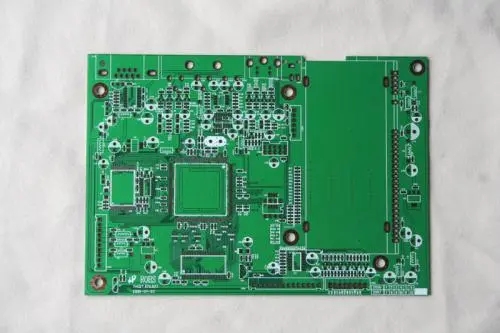PCB design the layout component direction you need to master

1. The design should be carried out in a certain order, for example, it can be carried out in the order from left to right and from top to bottom
2. The width of the wiring strips and the spacing of the lines should be moderate, and the spacing between the two pads of the capacitor should be as consistent as possible with the spacing of the capacitor leads;
3. When designing the wiring diagram, the wiring should be as few as possible, and the lines should be simple and clear.
4. Pay attention to the pin arrangement sequence when designing the wiring diagram, and the component pin spacing should be reasonable.
5. Wiring direction:
From the perspective of the welding surface, the arrangement of the components should be as consistent as possible with the schematic diagram, and the wiring direction should be consistent with the wiring direction of the circuit diagram. Because various parameters are usually tested on the welding surface during the production process, it is convenient to do so. Inspection, debugging and maintenance during production (Note: It refers to the premise of meeting the requirements of circuit performance, installation and panel layout of the whole machine).
6. Under the premise of ensuring the performance requirements of the circuit, the design should strive for reasonable wiring, use less external jumpers, and route the wires according to certain smooth charging requirements, and strive to be intuitive, easy to install, height and overhaul.
7. The arrangement and distribution of various components should be reasonable and even, and strive to be neat, beautiful, and strict in structure.
8. Arrangement direction of in and out terminal
(1) The two lead ends should not be too far apart, generally about 2-3/10 inches is more appropriate.
(2) The inlet and outlet ends should be concentrated on 1 to 2 sides as much as possible, and not too discrete.
9. Potentiometer: Principles for placing IC holders
(1) Potentiometer: It is used to adjust the output voltage in the voltage regulator, so the design potentiometer should be fully adjusted clockwise when the output voltage rises, and the output voltage of the counterclockwise regulator decreases when the output voltage is reduced; in the adjustable constant current charger The middle potentiometer is used to adjust the size of the charging current. When the potentiometer is designed, the current will increase when the potentiometer is fully adjusted clockwise. The potentiometer should be placed on the position of the unit to meet the requirements of the whole machine structure installation and panel layout, so it should be placed on the edge of the board as much as possible, with the rotating handle facing outward.
(2) IC holder: When designing a printed board drawing, when using an IC holder, be sure to pay special attention to whether the orientation of the positioning slot on the IC holder is correct, and pay attention to whether each IC pin is correct, for example, the first pin can only be used. It is located at the lower right or upper left corner of the IC socket, and is close to the positioning groove (viewed from the welding surface).
10. Resistance and diode placement direction in PCB layout:
PCB design is divided into two types: horizontal placement and vertical placement:
(1) Horizontal placement: When the number of circuit components is small and the size of the circuit board is large, it is generally better to use horizontal placement; for resistors below 1/4W, the distance between the two pads is general. Take 4/10 inches, when the 1/2W resistor is placed flat, the distance between the two pads is generally 5/10 inches; when the diode is placed flat, 1N400X series rectifier tubes, generally take 3/10 inches; 1N540X series rectifier tubes, generally Take 4-5/10 inches.
(2) Vertical installation: When the number of circuit components is large and the size of the circuit board is not large, the vertical installation is generally adopted in the PCB design, and the distance between the two pads is generally 1-2/10 inch.
The above is the introduction to the layout component directions that need to be mastered in PCB design. Ipcb is also provided to PCB manufacturers and PCB manufacturing technology